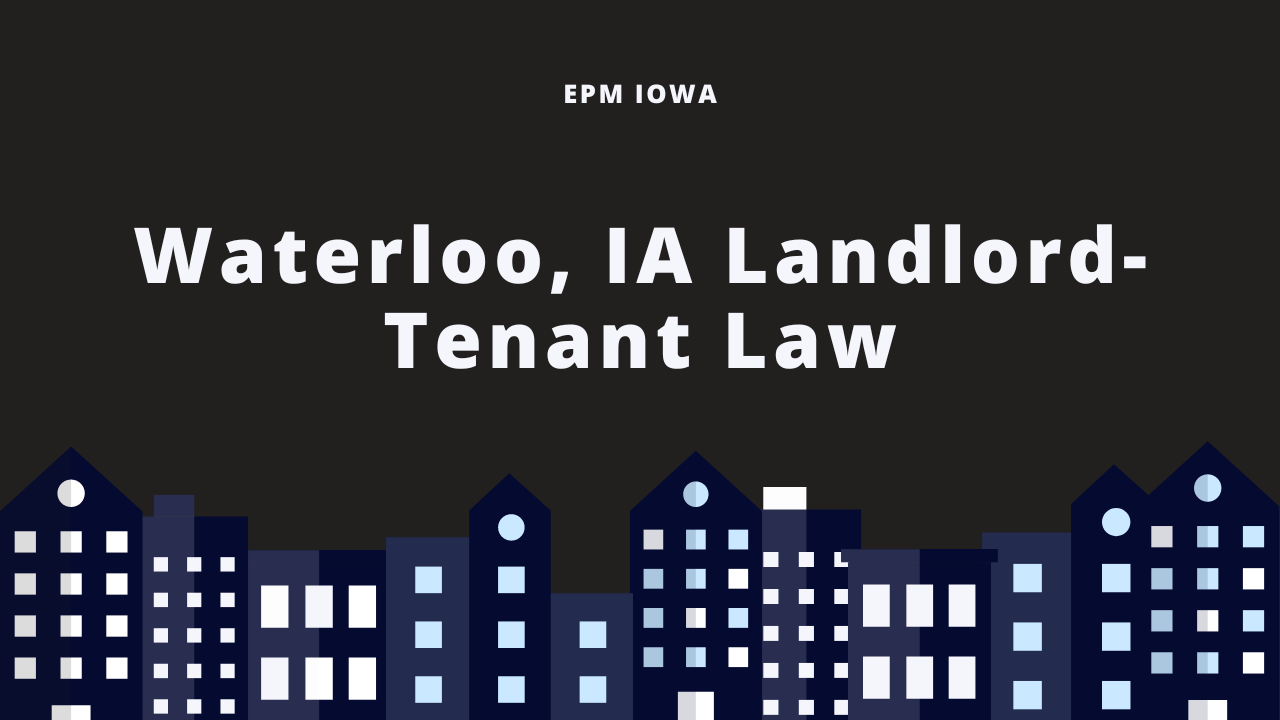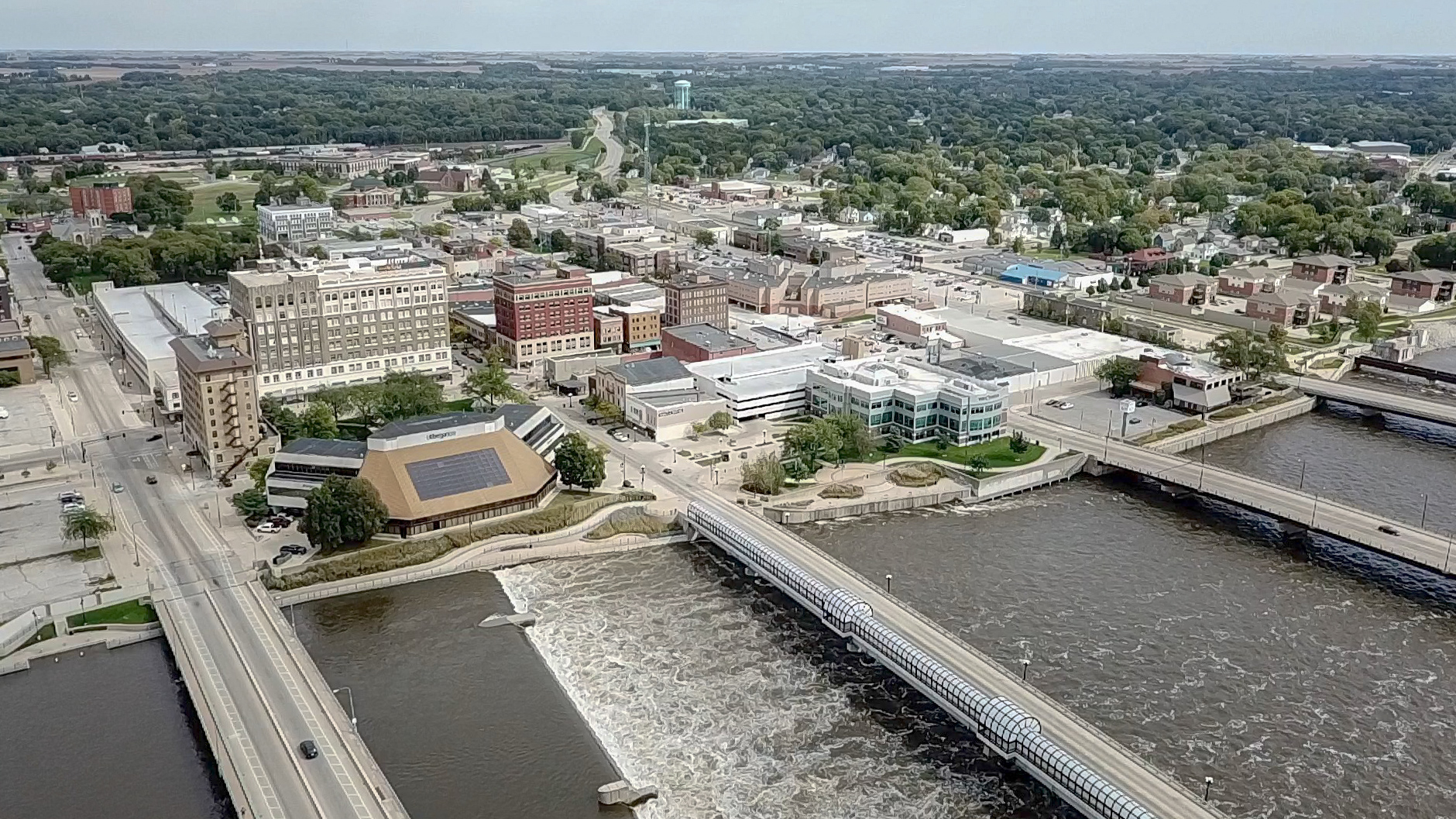
Are you a landlord that wants to know more about Iowa landlord-tenant law? Luckily, we can help!
Iowa, just like all states, has its own set of landlord-tenant laws to protect both the landlord and the tenants of a rental property. As a landlord, you must be familiar with these laws in order to ensure you are following the rent and tenancy practices outlined by the state.
While these laws may seem complicated, we have provided a comprehensive list to help you navigate these rules and regulations. So, if you’re ready to learn more about Iowa landlord-tenant law, keep reading!
Iowa Tenant Rights and Responsibilities
What exactly are a tenant’s rights in the state of Iowa? Tenants in Iowa have the right to request repairs from the landlord, live in a habitable environment, and have a legal eviction process.
Tenants have responsibilities that they must uphold during their tenancy as well. In Iowa, it is a tenant’s responsibility to do the following:
Keep the unit in a safe and sanitary condition
Make minor repairs when necessary
Follow all rent or housing codes
Dispose of waste in a clean and safe manner
Keep the plumbing fixtures of the unit clean
Use any appliance or fixture on the unit for its intended purpose
Avoid causing damage to the unit through abuse or neglect
Keep the property clean within a reasonable standard
Avoid disturbing neighbors or another tenant
Iowa Landlord Rights and Responsibilities
Landlords in Iowa also have rights, including the right to collect rent on time and in full every month. You also have the right to legally evict a tenant if they violate the terms of the rental agreement.
The responsibilities of a landlord are to provide tenants with a habitable living space and make any requested repairs within 7 days.
Your Guide to Iowa’s Landlord-Tenant Laws
Now that you are familiar with the rights and responsibilities of both yourself and your tenants, let’s go over some other important aspects of Iowa landlord-tenant law!
Tenant Privacy and Iowa Landlord’s Right to Enter the Unit
In Iowa, a landlord must provide their tenant with at least 24 hours notice before entering the rental property, whether to inspect the premises, make repairs, or do a walkthrough with prospective tenants. However, landlords may enter the area without notice in the case of an emergency that may harm the tenant.
Landlords and tenants will often agree on the specific notification rules before signing the lease agreement. If you choose to do this, make sure to include these policies, in writing, in your rental agreement.
The Condition, Repairs and Maintenance of the Property
It is the responsibility of the landlord to maintain a habitable living space on the rental property. But what exactly does that require? Here is a list of some of the responsibilities that landlords have regarding the habitability of the home:
Ensure the building has a stable structure
Provide functioning electricity
Maintain the facilities of the property
Supply access to running water
Iowa’s Housing Discrimination Laws
According to the federal Fair Housing Act, it is prohibited to discriminate against any tenant on the basis of race, color, national origin, religion, sex, familial status, or disability. Iowa also extends these protections for a tenant based on sexual orientation and gender identity.
Security Deposits
In Iowa, landlords may not charge more than 2 months’ rent for a security deposit. At the end of the lease, the landlord has 30 days to return the funds from the security deposit, or what is left of it. Landlords may make deductions from the deposit for unpaid rent, the cost of repairs for damage caused by the tenant beyond normal wear and tear, and removal fees for items abandoned on the property.
Required Landlord Disclosures
There are 5 mandatory lease disclosures that landlords in Iowa are required to make to their tenant prior to the lease being signed. These disclosures are usually in writing as a part of the lease:
Lead-based paint: If the rental property was built before 1978, then landlords must provide their tenant with information about lead paint concentrations used in the building.
Managers and agents: A tenant must be provided with the names and addresses of all parties who are involved with owning or managing the rental property.
Shared utility meter: A landlord must explain the rates of all utilities related to the rental property before signing a lease
Rent increase: In most cases, a tenant must be notified of a rent increase from their landlord 30 days before the effective date. If the tenant is on Section 8 assistance, they may need to be notified 60 days in advance. However, a landlord is not allowed to increase the rent during the term set out in the rental agreement.
Environmental hazards: Landlords must disclose to their tenant if the property appears on the “Comprehensive Environmental Response Compensation and Liability Information System”, also known as the CERCLA
Tenant’s Right to Repair and Deduct in Iowa
When a tenant requests a repair from their landlord, the landlord will have 7 days to make that repair to the rental property. If the landlord fails to do this, the tenant may be allowed to withhold paying rent or make the necessary repairs to the property themselves and deduct the cost from the next rent payment.
Small Claims Lawsuits in Iowa
Sometimes, conflicts between landlords and tenants require further legal action in order for the issue to be settled. Iowa’s small claims court system will hear cases related to damages that total up to $6,500 or less.
Bottom Line
So, now you are familiar with some of the important basics when it comes to Iowa landlord-tenant law! With this information, you can easily navigate the legal side of owning a rental property. By staying aware of these laws, you will be able to protect yourself and your property from being taken advantage of and avoid accidentally getting into legal problems.
If you have any further questions about Iowa’s landlord-tenant laws feel free to contact EPM Iowa today! Our professional property management team is always here to help you with any aspect of your rental property.
Disclaimer: This blog should not be used as a substitute for legal advice from a licensed attorney in your state. Laws change, and this post might not be updated at the time of your reading. Please contact us for any questions you have in regard to this content or any other aspect of your property management needs.




